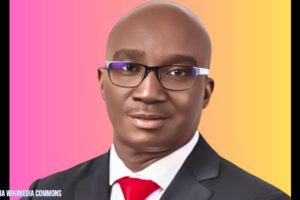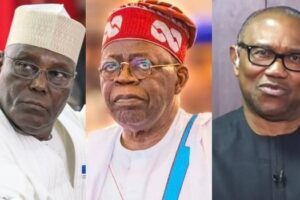Actress Oma Nnadi, known for her versatile roles in Nollywood, has voiced her concerns over the escalating cost of living in Nigeria. In a recent social media post, the actress lamented how daily expenses have skyrocketed, making it difficult for ordinary citizens to meet basic needs. Her commentary sheds light on a nationwide issue, as inflation and the economic downturn continue to push prices of essential goods and services beyond the reach of many Nigerians.
Nnadi emphasized how the increasing cost of living has affected her both personally and professionally. As a public figure, she recognizes her privilege but notes that even individuals in her position are feeling the pinch. “It’s not just about the price of food; it’s the cumulative effect of everything—transportation, housing, education, and healthcare. It feels like we’re suffocating,” Nnadi expressed, highlighting the widespread frustration among Nigerians across all socioeconomic classes.
Inflation and Economic Turmoil: The Root Causes
The surge in Nigeria’s cost of living stems from multiple factors, including inflation, currency devaluation, and rising fuel costs. The country, which imports a significant percentage of its goods, has been hit hard by the global rise in commodity prices. Additionally, the naira’s continual depreciation against foreign currencies has exacerbated the situation, making everyday items increasingly expensive.
Experts argue that Nigeria’s over-reliance on imports, coupled with insufficient local production, has left the country vulnerable to external economic shocks. The actress’ remarks highlight the urgency for economic reform, including policies that could strengthen local industries and reduce dependency on foreign goods. Without these reforms, experts warn that Nigeria’s cost of living crisis could persist or worsen.
The Impact of Fuel Subsidy Removal on the Nigerian Population
One of the major contributors to the recent spike in living expenses has been the removal of fuel subsidies by the Nigerian government. This policy shift, which was meant to stabilize the economy, has led to a sharp increase in fuel prices, subsequently affecting transportation and logistics costs. This increase trickles down to the cost of goods and services, adding more strain on the average Nigerian.
For someone like Oma Nnadi, who relies on mobility for her career, the increased fuel costs have a direct impact. The actress mentioned how travel for work engagements, shoots, and events has become more financially burdensome. As transportation becomes more expensive, Nigerians are forced to make tough choices, often cutting back on essentials like food and healthcare in order to afford the costs of daily commuting.
Nollywood’s Struggle in the Face of Economic Hardship
The rising cost of living has not only impacted individuals but also industries, with Nollywood facing significant challenges. Productions are feeling the heat as budgets tighten due to increased costs in logistics, equipment, and talent management. As one of the largest film industries globally, Nollywood’s operational expenses have soared, putting pressure on filmmakers, producers, and actors alike.
Oma Nnadi, being an integral part of Nollywood, is acutely aware of these struggles. She points out how smaller-scale productions, in particular, are being hit hard. “People are cutting back on the number of projects they can work on. It’s affecting the whole industry,” she said, signaling potential long-term consequences for Nigeria’s entertainment sector if economic conditions don’t improve.
Oma Nnadi: Social Media as a Platform for Advocacy and Awareness
Oma Nnadi is not the only celebrity to use social media as a platform to express concerns about Nigeria’s economic situation. In recent months, various public figures have taken to Instagram, Twitter, and other platforms to share their frustrations and raise awareness of the growing crisis. These posts are not just expressions of personal distress but serve as a form of advocacy, encouraging public discourse around the need for economic reform.
Oma Nnadi’s decision to speak out reflects a broader trend of celebrities utilizing their platforms for more than just self-promotion. By engaging in socio-political conversations, they help bridge the gap between the privileged and the general populace, highlighting issues that might otherwise be ignored by the government. This trend underscores the power of social media in modern activism, especially in countries like Nigeria where traditional media may not always cover such issues comprehensively.
The Way Forward: Solutions and Hopes for Economic Stability
While Oma Nnadi’s concerns reflect the frustrations of millions of Nigerians, experts believe that there are viable solutions to Nigeria’s cost of living crisis. Economists have suggested increasing investment in local industries, particularly in agriculture and manufacturing, to reduce dependence on imports and create more jobs. Additionally, calls for government accountability and transparency in the use of public funds have grown louder in recent months.
Oma Nnadi expressed hope that with the right policies, Nigeria can recover and offer better living conditions for its citizens. “We need to rebuild trust in our government and institutions, and we need leaders who prioritize the welfare of the people,” she concluded. As discussions around economic reforms intensify, many Nigerians share her optimism for a brighter future, even amidst current challenges.
Table of Contents
Discover more from OGM News NG
Subscribe to get the latest posts sent to your email.














